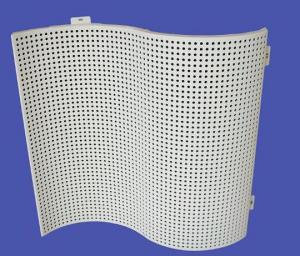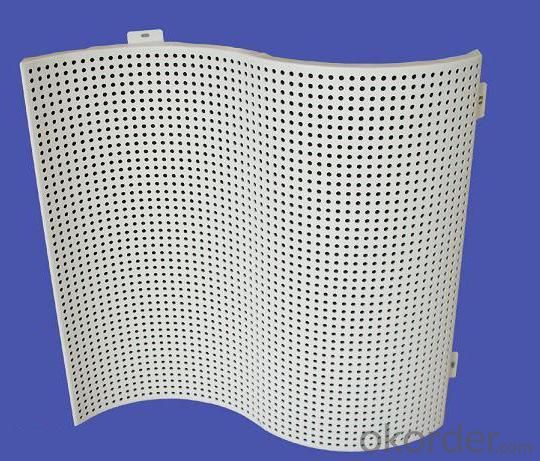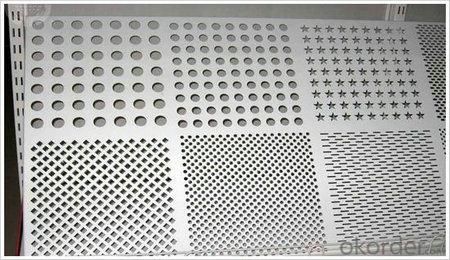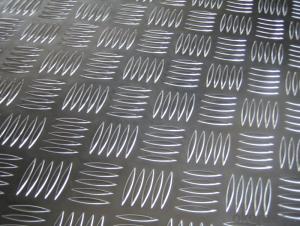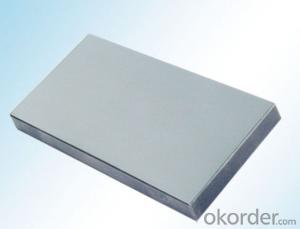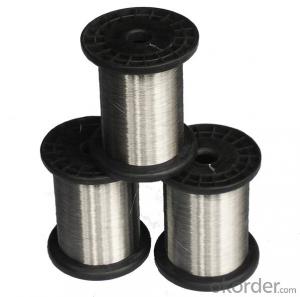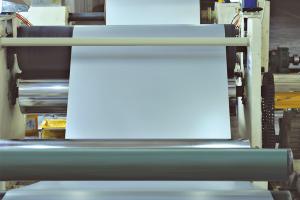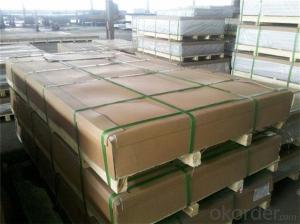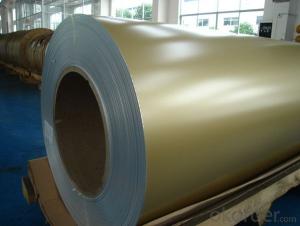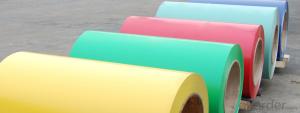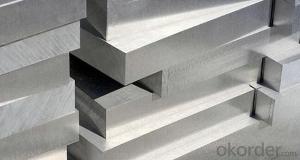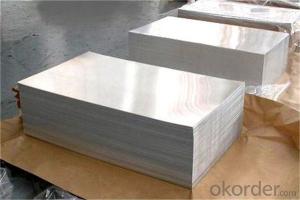Aluminum Skin Sheets - 0.4mm Alloy Aluminum Sheet 3003 H14 from China
- Loading Port:
- Shanghai
- Payment Terms:
- TT or LC
- Min Order Qty:
- 5 m²
- Supply Capability:
- 9000 m²/month
OKorder Service Pledge
OKorder Financial Service
You Might Also Like
Product Description
0.4mm alloy aluminum sheets 3003 H14
Alloy:3003
Temper: O H H12 H14 H18 H24
Thickness(mm):0.2-350mm
Width(mm):200-2300
Length(mm):800-13000
Delivery lead time: 20-25 days
Packing: wooden/veneer pallet, wooden/veneer case
Unit Price/Payment: FOB, CIF, CFR
Payment term: TT, LC at sight, Westen union
Country of origin: China
Certificate approved: ISO9001, SGS
MOQ: 2.0-2.5 metric ton per size
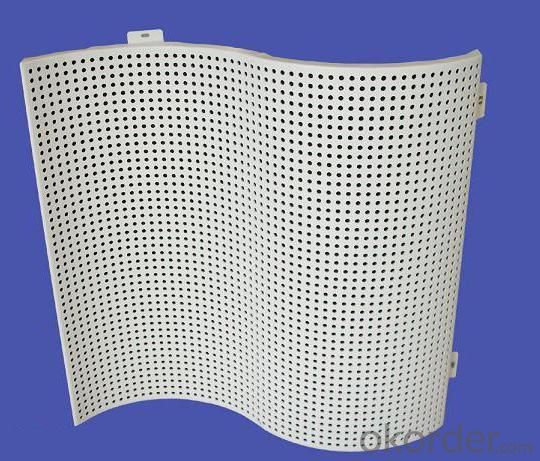
3003 Chemistry Composition | |||||||||
Element | Si | Fe | Cu | Mn | Mg | Cr | Ti | Zn | Al |
Standard Value | 0.6 | 0.7 | 0.05~0.20 | 1.0~ 1.5 | --- | --- | ---- | 0.10 | remainder |
3003 Aluminum is alloyed with 1.20% manganese, which increases the strength of 3003 over commercially pure aluminum (1100 series). 3003 has excellent workability, weldability, and good corrosion resistance. It is used for drawing, forming, spinning, fuel tanks, sheet metal works and other applications that require moderate strength for an aluminum with good weldability. H14 designates the temper, and means that 3003 has been strain hardened and partially annealed. In this condition, 3003 can be easily formed. Embossing or debossing 3003 in this temper should not strain or crack the plate.
The aluminum3003 ALUMINUM TREAD PLATE - Often referred to as diamond plate, it has the same properties of 3003H14, while excellent at resisting corrosion, and strong for light weight aluminum applications. The diamond trend pattern is slip-resistant and cosmetically appealing.
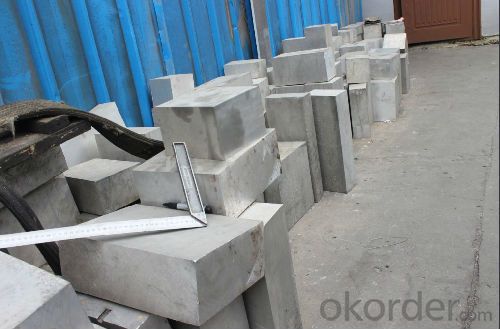
Applications:
· Cat Walks
· Heat Exchangers
· Food and Chemical handling equipment
· Truck and Trailer Roofing
· Floor Panels
Packaging & Delivery
| Packaging Details: | Export standard seaworthy fumigated wooden pallet only |
| Delivery Detail: | 15days |
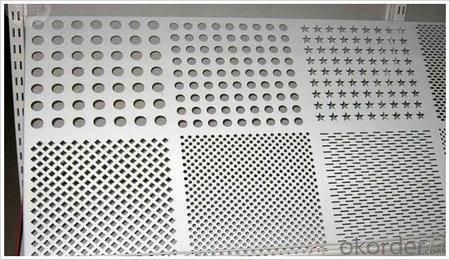
- Q: Can aluminum sheets be used as heat shields?
- Yes, aluminum sheets can be used as heat shields. Aluminum has high thermal conductivity, which means it can effectively absorb and distribute heat, making it an excellent material for heat protection. It is commonly used in various applications such as automotive, aerospace, and industrial settings to shield sensitive components from high temperatures.
- Q: What is the tensile strength of aluminum sheets?
- The tensile strength of aluminum sheets may differ based on the specific alloy and temper of the material. On average, aluminum sheets generally exhibit a tensile strength between 10,000 and 45,000 pounds per square inch (psi). It should be noted that the tensile strength of aluminum sheets varies depending on the grade and thickness. Moreover, factors like heat treatment, processing, and alloy composition can influence the tensile strength of aluminum sheets. Hence, consulting the manufacturer's specifications or conducting specific tests becomes necessary to ascertain the exact tensile strength of a particular aluminum sheet.
- Q: Can the aluminum sheets be used for manufacturing chemical storage tanks?
- Yes, aluminum sheets can be used for manufacturing chemical storage tanks. Aluminum is corrosion-resistant and has good strength-to-weight ratio, making it suitable for storing various chemicals safely.
- Q: How do you prevent galvanic corrosion when using aluminum sheets with concrete?
- To prevent galvanic corrosion when using aluminum sheets with concrete, it is essential to use a barrier or protective coating between the aluminum and concrete surfaces. This can be achieved by applying a suitable paint, epoxy coating, or a non-conductive membrane to isolate the aluminum from direct contact with the concrete. Additionally, using corrosion-resistant fasteners made of stainless steel or other compatible materials can further prevent the occurrence of galvanic corrosion. Regular inspections and maintenance are also crucial to identify and address any potential corrosion issues promptly.
- Q: Can aluminum sheets be recycled?
- Yes, aluminum sheets can be recycled. Aluminum is a highly recyclable material, and recycling aluminum sheets helps in conserving natural resources and reducing energy consumption compared to producing new sheets from raw materials.
- Q: Can aluminum sheets be used for sign making?
- Yes, aluminum sheets can be used for sign making. Aluminum is a popular choice in the sign making industry due to its durability, lightweight nature, and resistance to corrosion. It can be easily cut and shaped into various sizes and designs, making it versatile for different types of signs. Additionally, aluminum sheets can be painted or coated with vinyl graphics to enhance their visual appeal and make them more eye-catching. Overall, aluminum sheets are a reliable and cost-effective option for creating high-quality and long-lasting signs.
- Q: This question asks for a comparison between aluminum sheets that have undergone anodizing treatment and those that have not, highlighting their distinct characteristics.
- <p>Anodized aluminum sheets are aluminum that has been treated with an electrochemical process to increase its thickness and durability, forming a protective oxide layer on the surface. This process enhances corrosion resistance, wear resistance, and allows for a wide range of colors. Non-anodized aluminum sheets, on the other hand, have not undergone this treatment and are more prone to corrosion and less durable. They also have a more limited color range and are generally softer and less resistant to wear.</p>
- Q: Can aluminum sheets be used for automotive applications?
- Indeed, aluminum sheets find their utility in automotive applications. Being both lightweight and corrosion-resistant, aluminum proves to be an optimal choice for various automotive constituents. Car bodies, engine parts, wheels, and other structural components are commonly constructed using aluminum due to its desirable properties. Aluminum sheets possess an outstanding strength-to-weight ratio, thereby enhancing fuel efficiency and overall vehicle performance. Furthermore, aluminum exhibits commendable thermal conductivity, ensuring efficient heat dissipation in automotive scenarios. Consequently, the utilization of aluminum sheets in automotive production has gained substantial popularity owing to its numerous benefits.
- Q: What are the common thicknesses of aluminum sheets used in transportation industry?
- In the transportation industry, aluminum sheets are commonly used for various applications due to their lightweight, durability, and corrosion resistance. The common thicknesses of aluminum sheets used in the transportation industry typically range from 0.025 inches (0.63 mm) to 0.125 inches (3.18 mm). For applications such as automotive body panels, which require a balance of weight reduction and structural integrity, aluminum sheets with thicknesses of 0.040 inches (1.02 mm) to 0.063 inches (1.6 mm) are commonly utilized. These thicknesses provide sufficient strength while keeping the weight of the vehicle lower compared to steel counterparts. In the aerospace industry, where weight reduction is of utmost importance, thinner aluminum sheets are often used. Thicknesses ranging from 0.025 inches (0.63 mm) to 0.040 inches (1.02 mm) are commonly employed in the construction of aircraft structures, including wings, fuselage panels, and interior components. It is worth noting that the specific thicknesses of aluminum sheets used in the transportation industry can vary depending on the specific application, regulatory requirements, and design considerations. Therefore, it is essential to consult the relevant industry standards and specifications for precise information on the preferred thicknesses for different transportation applications.
- Q: What are the different types of aluminum sheets?
- There exists a variety of aluminum sheets, each possessing distinct characteristics and applications. Here are some commonly encountered types: 1. The plain aluminum sheet, with its smooth surface and uniform thickness, serves as the fundamental option. It holds widespread usage across various industries for general purposes. 2. The embossed aluminum sheet, achieved by rolling the metal through a patterned roller, presents a textured or patterned surface. It finds common application in fields like interior design or automotive trim, where decorative purposes are desired. 3. The perforated aluminum sheet, as its name implies, contains small holes or perforations throughout its surface. It frequently finds application in architectural scenarios, such as building facades or sunscreens, as well as in filtration systems. 4. The treadplate aluminum sheet, also known as checker plate or diamond plate, exhibits a raised pattern of lines or diamonds on its surface. This pattern enhances traction, making it suitable for industrial flooring or stair treads, where slip resistance is vital. 5. The anodized aluminum sheet undergoes an electrochemical process, forming a protective oxide layer on the surface. This process enhances durability, corrosion resistance, and allows for color customization through dye acceptance. Architectural applications, signage, and consumer products commonly employ anodized aluminum sheets. 6. The painted aluminum sheet, coated with a layer of paint, not only enhances appearance but also provides added corrosion protection. It is often utilized in applications where aesthetics are paramount, such as building facades, signage, or automotive parts. These examples represent a small selection of the aluminum sheet types available in the market. The selection of an appropriate type depends on specific project requirements, encompassing factors like durability, appearance, corrosion resistance, or slip resistance.
Send your message to us
Aluminum Skin Sheets - 0.4mm Alloy Aluminum Sheet 3003 H14 from China
- Loading Port:
- Shanghai
- Payment Terms:
- TT or LC
- Min Order Qty:
- 5 m²
- Supply Capability:
- 9000 m²/month
OKorder Service Pledge
OKorder Financial Service
Similar products
Hot products
Hot Searches
Related keywords
